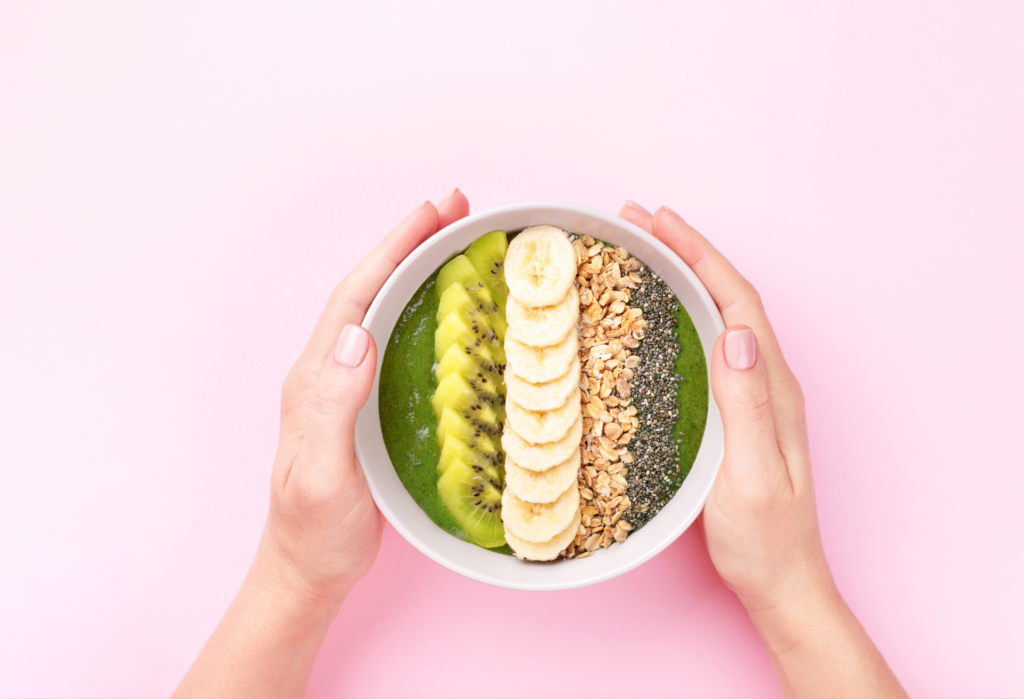
Many of us are keen to shed a few pounds accumulated during a previous six months defined by banana bread, sourdough and takeaway pizzas. But while the causes listed are dietary, when considering weight loss, so many people’s attention automatically turns to working out. You might be imagining yourself downloading workout apps, watching Joe Wicks videos, signing up for a gym membership or perhaps making your own at home.
And if you’re keen on building muscle or tone, this is definitely the best way to go about it. But in terms of weight loss, intense exercise can be tough to maintain, and before long, you’re back to square one. What’s more, there are many who simply aren’t able to exercise, due to injury or immobility. Fortunately, for these people, there are solutions.
In fact, as a general rule, it’s been said that a person should apply the rule of 80%/20% in favour of nutrition over exercise to lose weight; it’s actually possible to change one’s body composition through diet alone without exercise.
With a focus falling firmly on the importance of diet today, here are 5 ways to lose weight without the exercise.
A DIET PLAN
Not everyone is aware that diet plays a much bigger role than exercise when it comes to losing significant weight. Although exercise benefits are real, they can’t provide you with the results you want if you don’t do it consistently.
People with a busy lifestyle struggle to lose weight because they don’t have time to go to the gym or do home workouts. On the flip side, many also struggle with weight loss because they don’t have the time to cook healthy, balanced meals every night. For the latter, following diet plans from nutrition experts can be helpful, as they provide you with the right amount of nutrition for every meal.
If you do have enough hours in the day to cook regularly, then drawing up a meal prep plan each week, and cooking in batches, is a smart move to keep in control of your diet.
KEEP A JOURNAL
Being conscious of what you take in is the first step to changing your diet and losing weight. Keeping a journal or monitoring your weight loss journey is essential as it gives you an idea of how to properly manage the situation.
Writing down your food intake makes you more aware of how much you’re eating, and what, and the effect those meals are having on your moods and waistline. Taking a few minutes a day to look back at what you had for breakfast, snacks, lunch, and dinner will help you evaluate what you can change with the routine.
Include your weight in the journal. Keeping track of your weight will be the starkest, most tangible way to identify progress. Being conscious of your weight will make you more aware of what’s happening in your body and direct you to focus on what you need to change to become healthier; that sense bettering yourself each day can really help.
Joining a weight loss challenge with strangers or friends can keep those competitive spirits high, too. Make sure you note every effort you made in your diary and keep track of the things you need to monitor.

CHANGE YOUR DIET
You don’t need to do high-intensity exercises every day to lose a significant amount of weight. Changing what you eat is critical to losing weight without the added exertion of regular gym sessions. Here are some of the things you need to do.
- Focus on nutrition – Being mindful about the food choices you make can help you to focus on eating nutritionally balanced food to ensure your body is getting all the nutrients it needs each day. If you are eating a varied diet, you can remove the need to add supplements to your routine.
- Eat more protein – Protein is necessary for growth and for developing an efficient metabolism. That doesn’t mean you have to be scoffing down loads of meat, if that’s not your thing. Consider other protein sources like eggs, chia seeds, and tofu.
- Incorporate more fibre – This helps in cleaning your digestive tract through regular, erm, flow. Fibre is common in fruits and vegetables, oatmeal and legumes. Fibre slows down digestion, making you feel fuller and preventing constipation.
- Try probiotics – Foods with high probiotics help in initiating good digestion. Foods high in probiotics, such as fermented items like yoghurt and kimchi, help the good bacteria in your intestines work to provide you with enough energy to fuel your day.
DRINK WATER AND CUT SUGARY DRINKS
To lose weight, practice drinking water 30 minutes before your meal. When you drink water before meals, you feel fuller, and this will tell your brain not to eat more than you need. On top of that, cutting back on the sugary drinks is also hugely beneficial for your health; these drinks (soda, synthetic fruit juices…you know the drill) contain high levels of, you guessed it, sugar.
If you do have a craving for that sweetness, prioritise healthier choices like sparkling lemon water, mint tea with honey, or fresh fruits, as these all contain a lesser amount of sugar and calories.

KEEP A HEALTHY ROUTINE
Maintaining a healthy routine is more than just eating the right food. Sleeping well, raising the heartbeat regularly through exercise or simply walking, and doing things that reduce your stress are all essential in losing weight.
Poor sleeping patterns, in particular, disrupt your body’s hormones, including the ones affecting your metabolism. When you feel stressed, you don’t sleep well and run the risk of developing insomnia. No one wants that. To reduce stress, you can do light exercise or physical activities like yoga, walking, or spending 15 minutes doing low-intensity workouts.
Though it needn’t necessarily mean a heavy sweating session at the gym, exercise is important and adults should do some type of physical activity every day; in the words of the NHS ‘any activity is better than none, and more is better still’.
THE BOTTOM LINE
Of course, exercise still plays a pivotal role in weight loss, but for those who have never taken well to working, or can’t put in a shift at the gym due to injury of mobility, there are, fortunately, still ways to lose weight.





